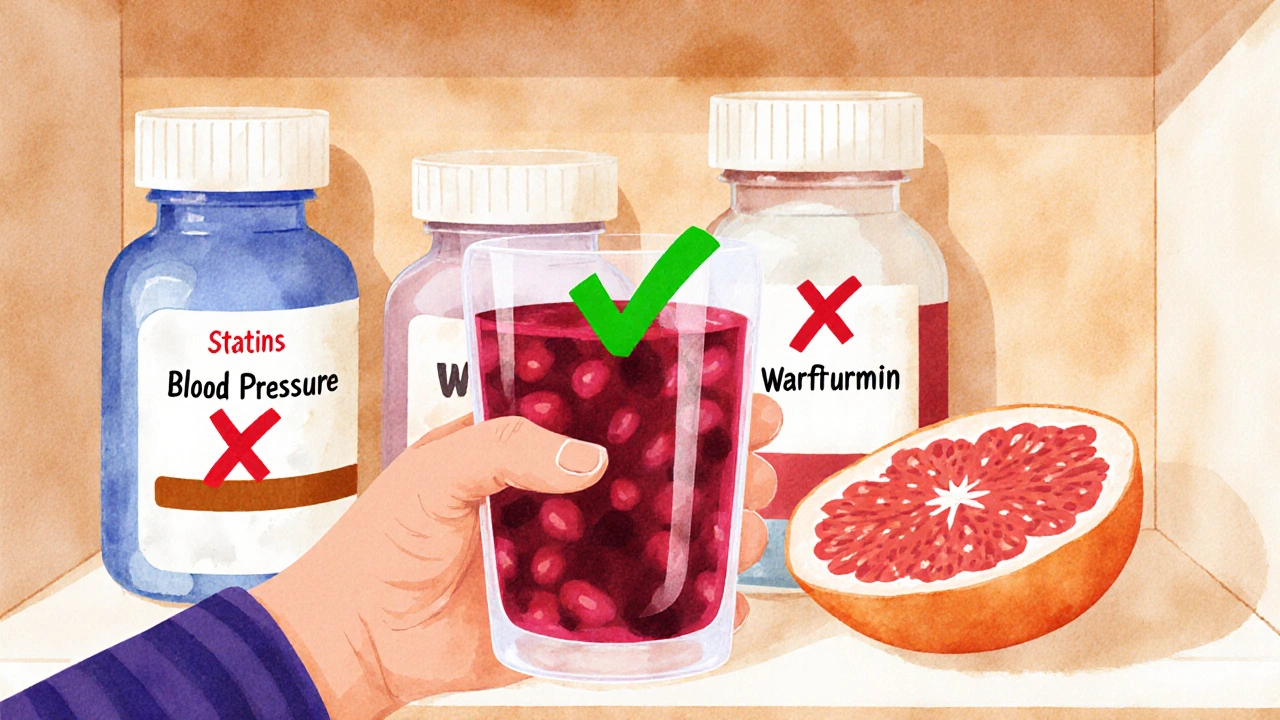Grapefruit Juice Comparison: Drug Interactions, Risks, and Safe Alternatives
When you drink grapefruit juice, a citrus fruit juice known for its tart flavor and high vitamin C content. Also known as grapefruit juice interaction, it can unexpectedly change how your body processes many common medications. This isn’t just a minor warning—it’s a well-documented risk that affects everything from blood pressure pills to cholesterol drugs. The problem isn’t the juice itself, but how it blocks an enzyme in your gut called CYP3A4. That enzyme normally breaks down certain drugs so they don’t build up to dangerous levels. When grapefruit juice shuts it down, your body absorbs way more of the drug than intended, turning a safe dose into a potential overdose.
That’s why warfarin, a blood thinner used to prevent clots and statins, cholesterol-lowering drugs like simvastatin and atorvastatin are on the high-risk list. Even small amounts of grapefruit juice can cause INR spikes in people on warfarin, leading to bleeding risks. For statins, it can trigger muscle damage or kidney failure. But it’s not just these two. calcium channel blockers, used for high blood pressure and angina like amlodipine and felodipine can also spike dangerously, causing dizziness, low blood pressure, or even heart rhythm issues. And it’s not just prescription drugs—some supplements and over-the-counter meds are affected too. The effect lasts longer than you’d think: even if you drink grapefruit juice hours before taking your pill, the enzyme blockage can still be active.
So what do you do if you love grapefruit juice but take meds? The safest move is to skip it entirely and swap it for orange juice, a citrus alternative that doesn’t interfere with CYP3A4—but only if it’s not Seville or bitter orange, which have similar risks. Apple juice and pineapple juice are safer bets too. Always check your pill’s label or ask your pharmacist: if it says "avoid grapefruit," don’t test it. This isn’t a guess-it-and-hope situation. People end up in the ER over this every year. The good news? Once you know which drugs are risky, you can easily avoid the problem. Below, you’ll find real comparisons of how grapefruit juice affects common medications, what alternatives actually work, and how to stay safe without giving up your morning routine.

Pomegranate Juice and Medications: What You Really Need to Know About Drug Interactions
Pomegranate juice doesn't interact with medications like grapefruit juice does, despite early lab studies suggesting otherwise. Human trials show no clinically significant effects on drug levels, making it safe for most people on common medications.





